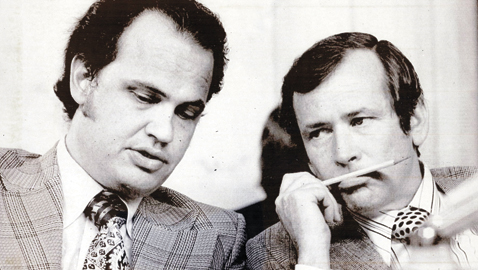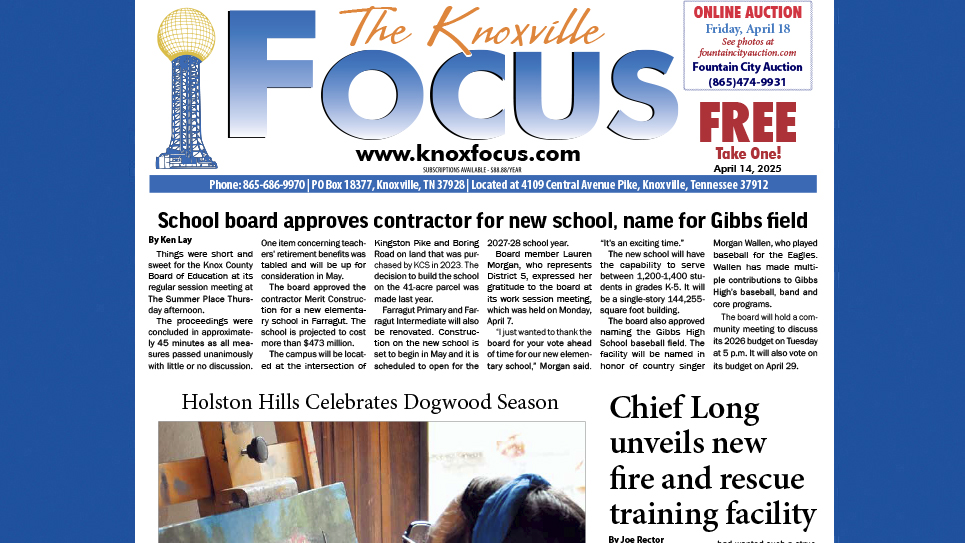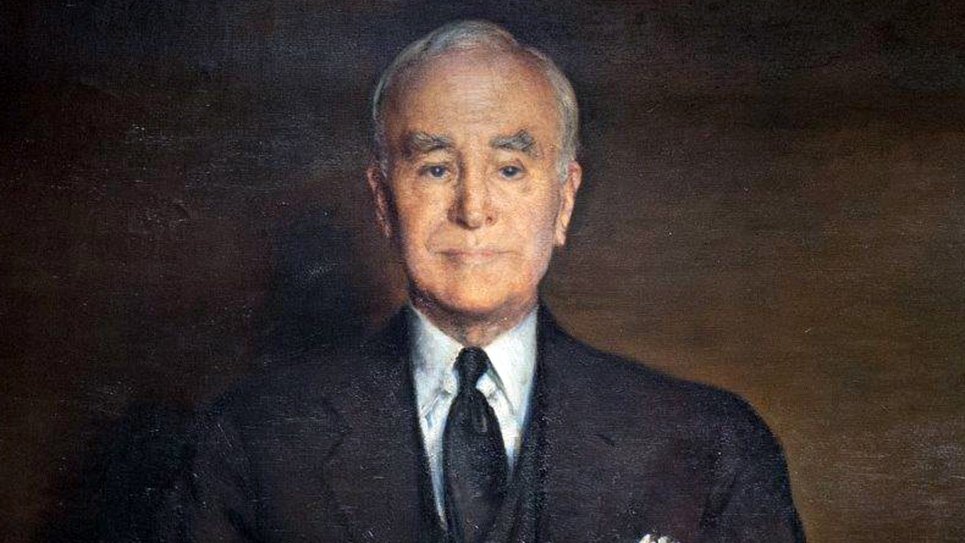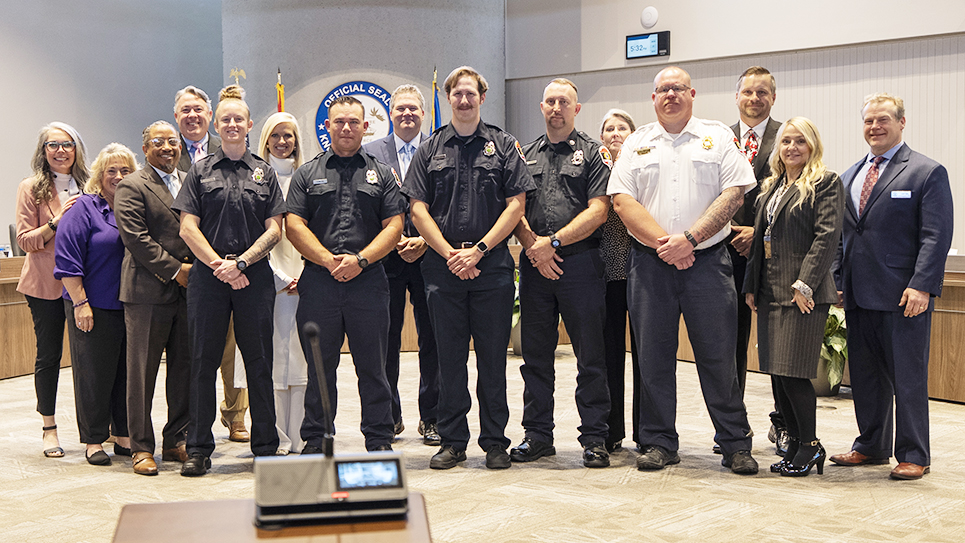By Ray Hill
There were those who believed Howard Baker’s election to the United States Senate was an aberration; some believed Tennessee would return to its Democratic roots in the next election cycle. Yet Richard Nixon carried the Volunteer State in the 1968 presidential election. The Democratic nominee, Hubert Humphrey, had run a poor third that year while George Wallace was close on Nixon’s heels.
Even more shocking to Democrats was the temporary loss of control in the Tennessee House of Representatives. There was worse to come. Bill Brock defeated Albert Gore for the U. S. Senate and Winfield Dunn beat John Jay Hooker to become the first GOP governor since Alf Taylor in 1920.
As 1972 dawned, many of the Democrats who had been popular with Tennesseans were gone. Governor Frank Clement had died in an automobile accident in 1969; Ross Bass had been defeated and became a lobbyist. Albert Gore had been retired by Bill Brock and Buford Ellington had left the governor’s mansion in 1971. Ellington had little time left to live, dying while playing a round of golf in Florida on April 13, 1972.
A wide array of Democrats were eager to face Richard Nixon in the general election. The initial front-runner for the nomination was Senator Edmund Muskie of Maine, who had been Hubert Humphrey’s running mate in 1968. Alabama governor George Wallace entered the primary contests and Congresswoman Shirley Chisholm of New York became the first black woman to become a presidential candidate. Senator George McGovern of South Dakota became the “peace” candidate and Senator Henry M. Jackson of Washington, a legislator of real talent and ability, entered the race. Finally, the old warhorse of Democratic politics, Minnesota’s Hubert Humphrey, was unable to constrain himself and sought the nomination yet again.
Muskie faltered in the New Hampshire primary, with McGovern running a strong second. George Wallace stunned the party establishment when he won every county in Florida. Wallace further shocked establishment Democrats when he ran just behind McGovern in the Wisconsin primary. Wallace won the Michigan primary with more than 50% of the vote and was campaigning hard in Maryland when he was felled by a gunman and left paralyzed.
George McGovern emerged as the Democratic nominee and it was a foregone conclusion he would lose Tennessee badly. Still, Democrats in the Volunteer State thought Senator Howard Baker might be vulnerable. Redistricting had eliminated one congressional seat and Congressman Ray Blanton had been eyeing Baker’s Senate seat for at least two years.
Blanton was a rural Democrat from West Tennessee and had toppled long-time incumbent Tom Murray in 1966. Ray Blanton was known less for his legislative achievements than his modish wardrobe. Blanton believed if he could hold down the vote for Baker in East Tennessee, he would win overwhelmingly in traditionally Democratic Middle Tennessee and carry his own native West Tennessee for a victory in the general election.
Congressman Blanton was moving around the state well before officially announcing his candidacy. Speaking in Waverly, Tennessee before a gathering of the Humphreys County Livestock Association, the congressman said he believed farmers were treated poorly, both by the public and the government. Blanton claimed farmers had been “subsidizing every American consumer’s living expenses for years.”
While Congressman Blanton was in West Tennessee, Senator Baker was addressing McMinn County Republicans at their annual Lincoln Day Dinner gathering. Baker predicted President Nixon would carry Tennessee in the fall, but warned, “Voters who have thrown off the shackles of one party rule quite rightly will not swear blind allegiance to either party.”
Blanton finally made his candidacy official when he hosted a fish fry in Shiloh, Tennessee on April 13, 1972. Blanton’s announcement was a departure from the norm as most candidates had begun statewide candidacies by announcing in Nashville and touring the state for the widest possible media coverage. Congressman Blanton had kicked off every campaign by hosting a fish fry and his 1972 Senate bid was no different. Blanton opted to announce in a rural, West Tennessee location to broaden his appeal to rural and conservative Democrats.
Ray Blanton made a twenty-minute speech to declare himself a candidate and began by saying, “I’m not running against Howard Baker, I’m running for those Tennesseans who have no voice in the United States Senate.”
“For the first time in decades, the majority of Tennessee Democrats and Independents have no representative in the United States Senate,” Blanton claimed. “For the first time since the Civil War, both United States senators come from and reflect the views of one geographic area of our state.”
Ray Blanton tried a populist message, lumping Republican senators Howard Baker and Bill Brock together. The congressman felt sure “that the wealthy candy company executive (Brock) and the wealthy banker-lawyer (Baker) can or even want to articulate the views and needs of a majority of our people.”
Congressman Blanton said, “Their record and reputation indicate they prefer to parrot the traditional special interests philosophy of an elitist party.”
Blanton admitted he faced a daunting task in “seeking the Democratic nomination of a badly divided party” but felt he was the one candidate who could “unite the party.”
Howard Baker’s own announcement that he would seek a second six-year term in the United States Senate came on May 19 in Nashville. Newsmen were invited to attend a reception sponsored by the senator the night before his announcement. Baker’s reelection announcement was held at the King of the Road Motor Inn, which had been built by singer/songwriter Roger Miller.
Senator Baker faced no serious opposition in the Republican primary while Blanton faced several minor candidates. Congressman Blanton was careful not to ruffle the feathers of his opponents in the primary, knowing his only chance of victory in the fall would be to enter the general election with a revitalized and united Democratic Party.
Howard Baker continued performing his duties in the Senate, all the while moving around Tennessee. Baker joined Congressman Jimmy Quillen in late May in Johnson City where both spoke to the Washington County Young Republicans. The genial Baker merely grinned and shrugged off charges he was a “rubber stamp” for the Nixon administration. During the course of his remarks, Senator Baker admitted he favored the most of President Nixon’s program, but stressed there where those areas where he disagreed with the administration.
One of Blanton’s opponents, Raymond Gibbs, put on heavy hiking boots and proposed to walk from Memphis to Bristol, a tactic employed with much more success by Lamar Alexander six years later. Gibbs bragged he would “blow Blanton right out of the state and go on to beat Senator Howard Baker.”
While attending the Republican National Convention in Miami, Senator Baker pointed out Tennessee was one of only seven states in the nation with a Republican governor and two GOP U. S. senators.
The August primaries indicated the relative strengths of the senatorial candidates. Howard Baker’s lone opponent in the Republican primary, Maryville attorney Hubert Patty, won 3% of the vote. Baker won 242,373 votes to a mere 7,581 votes for Patty.
Blanton took just over 76% of the vote against his four opponents and actually outpolled Baker with 292,249 votes. Still, the fact that Senator Baker had tallied the highest primary vote ever given a Republican in Tennessee did not bode well for Congressman Blanton. The primary election saw the rise of a new face in Tennessee politics when twenty-eight year old Bob Clement upset long-time incumbent Hammond Fowler in the Democratic primary.
Referring to Democratic presidential nominee, Senator Baker quipped, “I would rather run with my president than his.”
George McGovern would indeed prove to be a heavy burden for Ray Blanton to carry in Tennessee. Congressman Blanton immediately tried to disassociate himself from his party’s nominee. “I don’t ride on anybody’s coattails,” Blanton snarled as he claimed victory. “I’ll run my own campaign – – – and I’m certainly no rubber stamp for Nixon.”
Ray Blanton grudgingly said he would cast his own ballot for McGovern, as he was a Democrat and always supported the ticket, but that was as far as he would go. The defection of prominent Democrats in Tennessee had already begun with the popular Mayor of Nashville, Beverly Briley, who had become vice chair of Democrats for Nixon.
Even Tennessee’s “Mr. Democrat” Herbert S. “Hub” Walters, who had served in the U. S. Senate by appointment of Governor Frank Clement, was rumored to be a Democrat for Nixon. A wealthy contractor, banker, and businessman, one of Walters’ nephews was openly for Howard Baker.
By September even the most optimistic Democrat realized George McGovern’s cause was hopeless in Tennessee. Volunteer State Democrats began to urge voters to split their tickets; they could vote for President Nixon while voting for Democrats for state and local offices. The Blanton campaign sent out a brochure headlined “All You Wanted To Know About Senator Howard Baker But Were Afraid To Ask.” The Blanton campaign tried to tie Senator Baker to the busing of students in Nashville. Baker had sponsored the appointment of federal judge L. Clure Morton, who had ordered the busing of Nashville students.
Howard Baker’s campaign received a boost when Vice President Spiro Agnew made a campaign swing through Tennessee. In Chattanooga on September 21. Agnew, an obscure governor of Maryland when lifted into the national limelight by Richard Nixon in 1968, had become the bane of liberals and the hero of conservatives. Agnew hit George McGovern hard, noting the South Dakota senator’s “compassion” for the North Vietnamese people.
“Now I would like to ask,” Spiro Agnew thundered, “why he doesn’t have the same compassion for the hundreds of thousands of Vietnamese who have been ruthlessly exterminated by the North Vietnamese.”
The vice president told his audience he would shed no tears for the North Vietnamese who were guilty of “premeditated murder by a scheming and ruthless nation whose goal was to conquer another country.”
While speaking in Nashville at the Grand Ol’ Opry, Agnew went after Ray Blanton for trying to blame the senator for busing students. Agnew noted Republicans had opposed busing “in every way they can.” Calling Blanton by name, Agnew said, “This administration is for quality education. But there is no relationship between busing and equal opportunity.”
Photographs of a beaming Spiro Agnew lifting Howard Baker’s hand into the air appeared in virtually every newspaper in Tennessee.
Blanton announced some endorsements of his own; Tennessee Secretary of State Joe C. Carr, House Speaker Jim McKinney. Lieutenant Governor John Wilder, State Comptroller William Snodgrass, and House Caucus Leader Ned McWherter were all party regulars and backing the congressman in his bid to unseat Howard Baker. One can easily imagine which endorsement received the most attention from the news media.
Ray Blanton’s attempt to tie Baker to the busing of Nashville students was further undermined when the senator abandoned his campaigning in Davidson County to return to Washington, D. C. while the Senate was considering a busing bill.
Well into October, Congressman Blanton maintained Senator Baker was in trouble. When queried by a reporter as to just exactly how his campaign was going, Blanton replied, “We are ahead – – – even or ahead.” Blanton insisted he would run far better than expected in the heavily Republican First and Second Congressional districts and estimated he would fare better still in the Third Congressional district. One skeptical newsman pointed out the congressman had barely bothered to campaign in East Tennessee since the August primary, Blanton had little choice but to admit it was true. The congressman said he had visited East Tennessee many times over the years and muttered a vague statement about East Tennesseans “have long memories.”
While speaking to a group of Democrats in Kingsport, Blanton complained about “the shallow rhetoric of empty promises made by Baker in 1966 when he was running against Governor Frank Clement.”
Howard Baker announced he would finish his own campaign by touring the state by train. The Baker campaign did a masterful job of incorporating local high school bands to serenade audiences while the senator spoke from the rear platform. Senator Baker noted he had made his first trip to Washington, D. C. by train when he was ten years old.
Howard Baker’s old-fashioned “whistle stop” tour of the state began on October 30 in Bristol and ended in Memphis on November 2. The “Senator Baker Special” was pulled by a ninety-year old steam engine named “Rosebud” owned by the Clinchfield Railroad.
The whistle stop tour was a stroke of genius as thousands of Tennesseans flocked to hear the senator speak. Howard Baker’s own campaign believed the senator would be reelected by 175,000 votes. On Election Day, Senator Howard Baker swamped Ray Blanton, winning by 275,000 votes. Howard Baker carried all eight of Tennessee’s Congressional districts.
Ray Blanton gave his assessment for his defeat, saying, “Our problem was simply McGovern and money.”
Two years later, the people of Tennessee would hear from Ray Blanton yet again.







